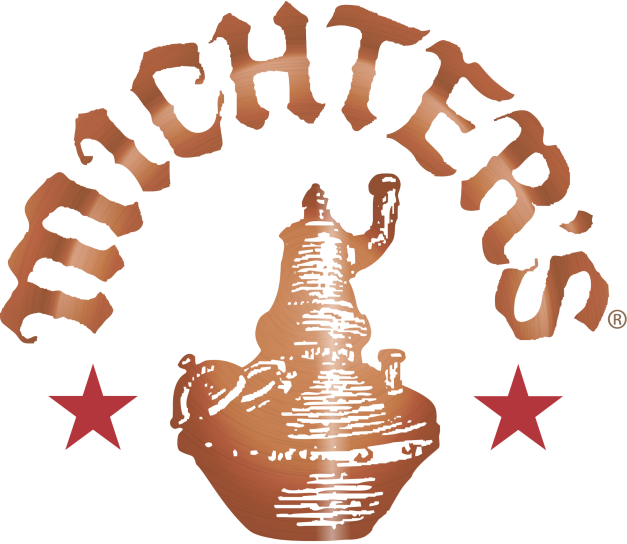If you asked a spirits expert a quarter century ago to name the most important bourbons ever made, they might have wondered whether America’s home-grown whiskey deserved such analytical consideration. Bourbon was in the doldrums, unappreciated and underdrunk.
But today, thanks to a boom that shifted into high gear around the turn of the century, bourbon is arguably the most talked-about, most obsessed-over and most in-demand spirit in the world. To better assess how we got here, we consulted with 23 bourbon experts, including distillers, journalists, authors, whiskey-bar owners and one whiskey-centric-liquor-store proprietor.
Each participant named five to ten bourbons that made a difference—not their favorite bourbons, or the ones they thought tasted best, but those bottles that were influential, innovative or otherwise held a significant place in bourbon history. They were allowed to reach way back to pre-Prohibition years, cite bourbons they could never have tasted, and yes, in the case of distillers, include their own creations. (One self-serving endorsement would not land them a spot on this list, however, as every bourbon here received multiple votes.)
The final order was determined strictly by the votes received. There were a number of ties in the lower rankings. In those cases, editorial judgment determined final rankings. In a few instances, the panelists indicated complete lines of bourbons that bore the same name, not just a single bottling. In other cases, panelists pointed out different bottlings within a single line. As the arguments behind these choices were often similar, these votes were sometimes combined and placed within the rankings as a bourbon label’s complete line. (Sound complicated? Well, so is today’s bourbon market.)
Without further ado, here’s the list. A visceral debating of the results is expected, even encouraged. We only ask you do your arguing with a bourbon in one hand and leave the other hand free for volatile gesturing. —Robert Simonson
25. Flavored bourbons
Let’s begin this list with a collective groan from the bourbon cognoscenti. The advent, and popularity, of flavored bourbon over the last decade has been a sore spot for purists. But this is a list of important bourbons, not necessarily good ones. (And, in this case, not necessarily bourbons. Whatever the distilleries marketers insist, most flavored bourbons are technically liqueurs in my book, not whiskies.) There has been no more controversial—or rampant—trend in bourbon over the past few years than flavored whiskey. A few of our experts felt compelled to grudgingly point this out. No particular flavored bourbon was signified, though Wild Turkey’s American Honey (a trailblazer, introduced way back in 1976) and Jim Beam’s Red Stagg were mentioned. If bourbon is indeed booming, these bottles are part of the reason.
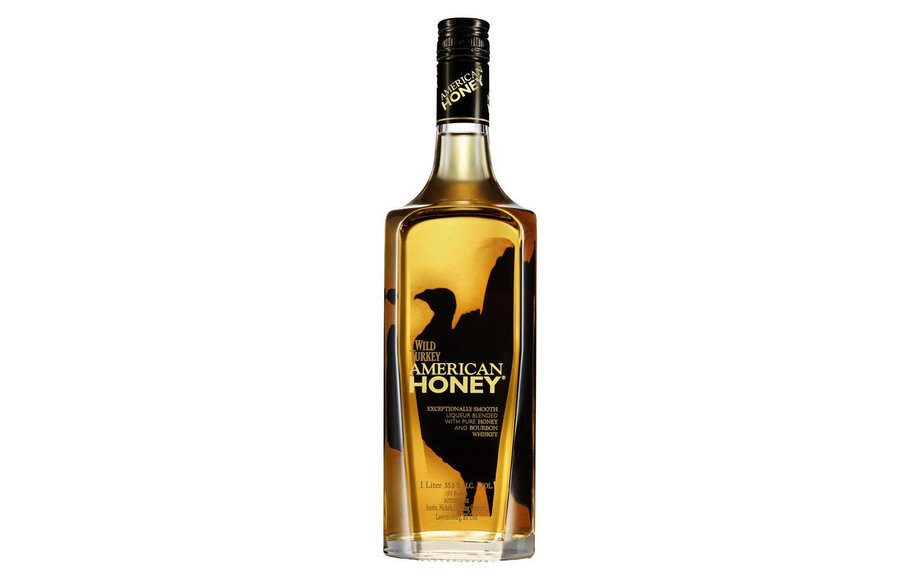
24. Michter’s line
This old Pennsylvania distilling name got new life in the 1990s under new owners who sourced, rather than made, their whiskey. They are now producing whiskey at their own distillery in Shively, Kentucky, which opened its doors in 2012, and, in 2018, will also distill on a smaller scale in a facility on Main Street in Louisville. Together, the two buildings represented a huge new investment and show of faith in the Kentucky bourbon industry. The owners also recently hired Pamela Heilmann as master distiller, a rare woman in that role in the bourbon world at the moment.
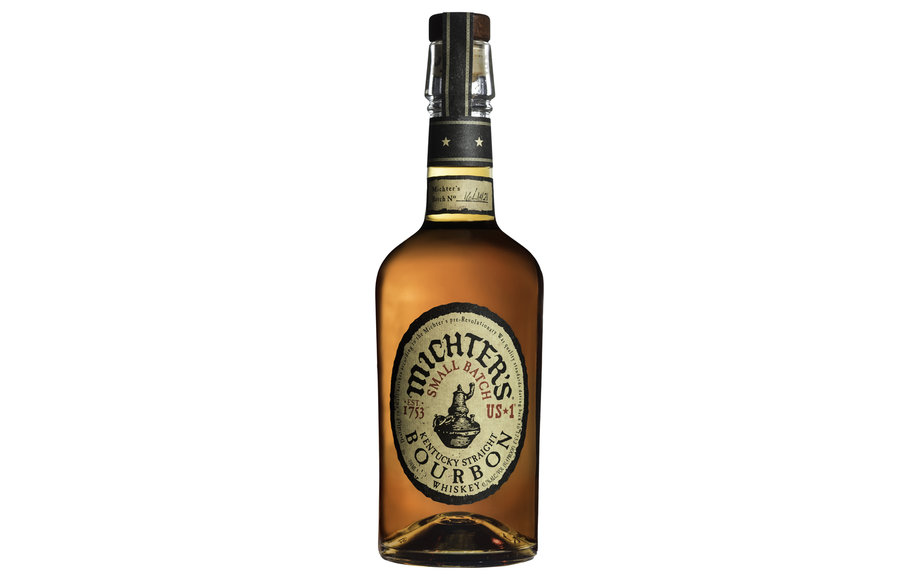
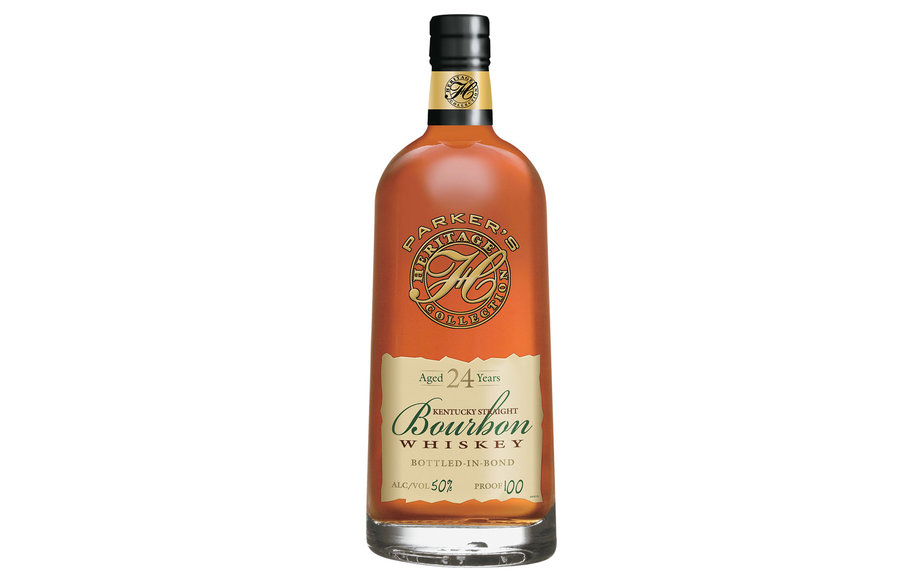
23. Parker’s Heritage Collection
Named for the late master distiller Parker Beam, this annual series was launched in 2007 and has since become one of the most highly anticipated bottlings produced by Heaven Hill. The limited releases typically have a higher age and alcohol level. Past renditions have included a malt whiskey and a wheat whiskey. Bourbon writer Chuck Cowdery was so impressed by the 2012 blend of rye and wheated bourbon mashbills that he called it “one of the best bourbons ever made and a great example of what a veteran master distiller at the height of his powers can accomplish.”
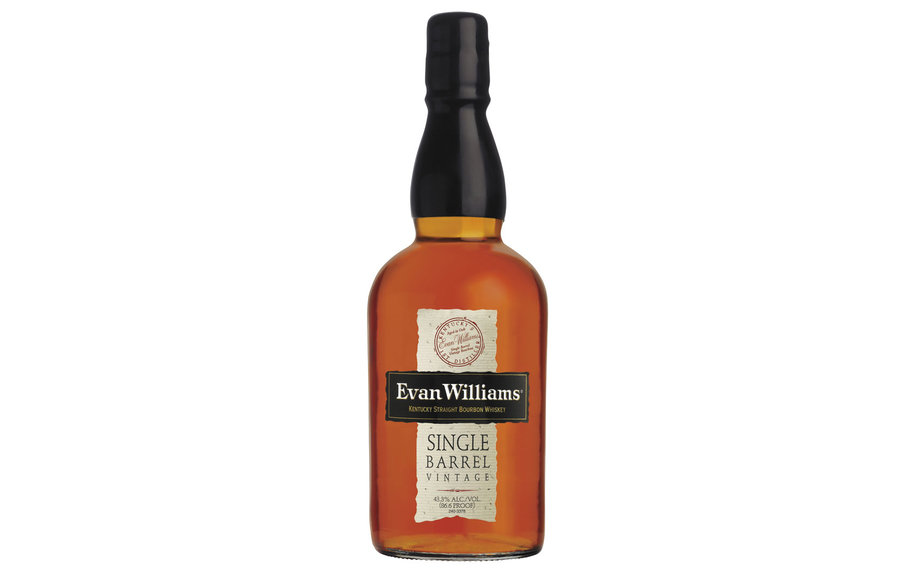
22. Evan Williams Single Barrel
One of the best bargains in the bourbon world and the star of Heaven Hill’s Evan Williams line, it borrowed terminology from the wine world, calling itself a “vintage” bourbon, meaning a new iteration is released every year. Introduced in 1996, it was also among the first widely marketed single-barrel bourbons. The juice inside ranges from seven to ten years. “The whiskey is the highest expression of Heaven Hill’s standard bourbon mashbill and each vintage that I have tasted is remarkable in quality and nuance and robust flavor,” said Allen Katz, co-owner of the New York Distilling Company.
21. Weller line
An old bourbon name currently owned and produced by The Sazerac Company, it is a relative bargain if you can find it on the shelf (which is tough, these days). Weller is often sought by Pappy chasers, owing to its wheated mashbill (it has the same wheat-heavy recipe as Pappy, but aged differently), and its heritage. The label was once owned by Pappy van Winkle and produced at the legendary old Stitzel-Weller distillery. “The closest you can get today to the taste of those great Stitzel-Weller wheaters of yore,” said Cowdery of the 12-year-old.
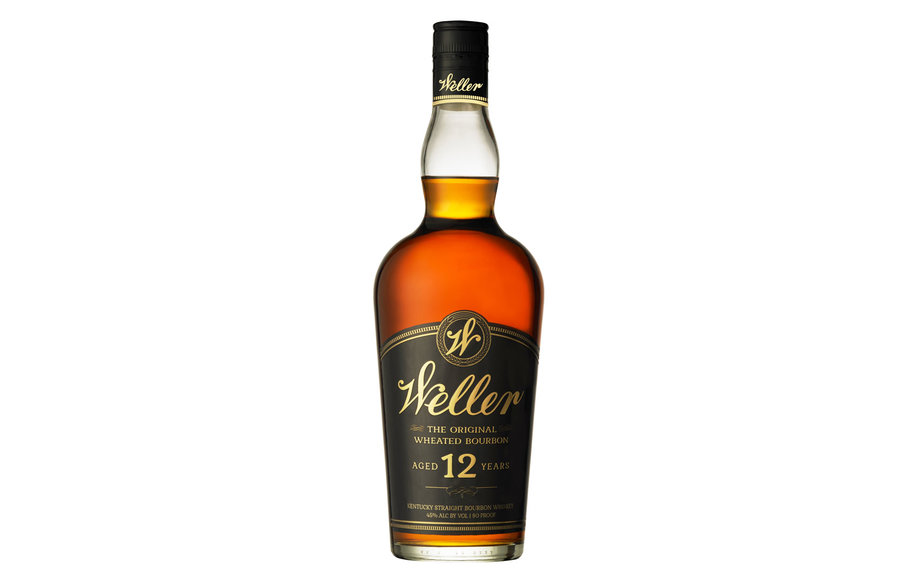
20. Evan Williams
One of the great values and workhorse labels of the bourbon industry, the ubiquitous Evan Williams black label, produced by Heaven Hill, has been one of the primary drivers of bourbon growth for many years. It is the second-largest-selling Kentucky straight bourbon in the world, and it’s a rare bourbon lover who hasn’t tasted it. Even rarer is a liquor store that doesn’t carry it.
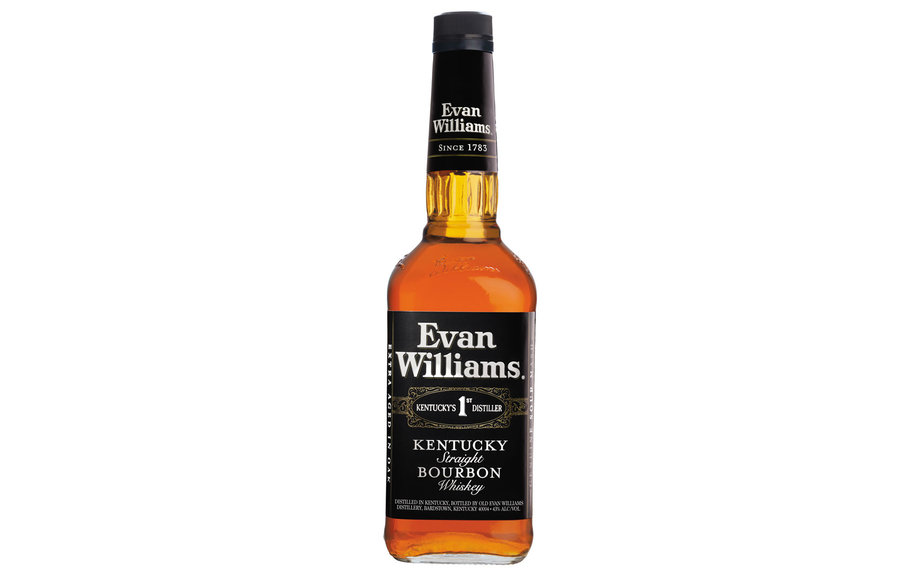
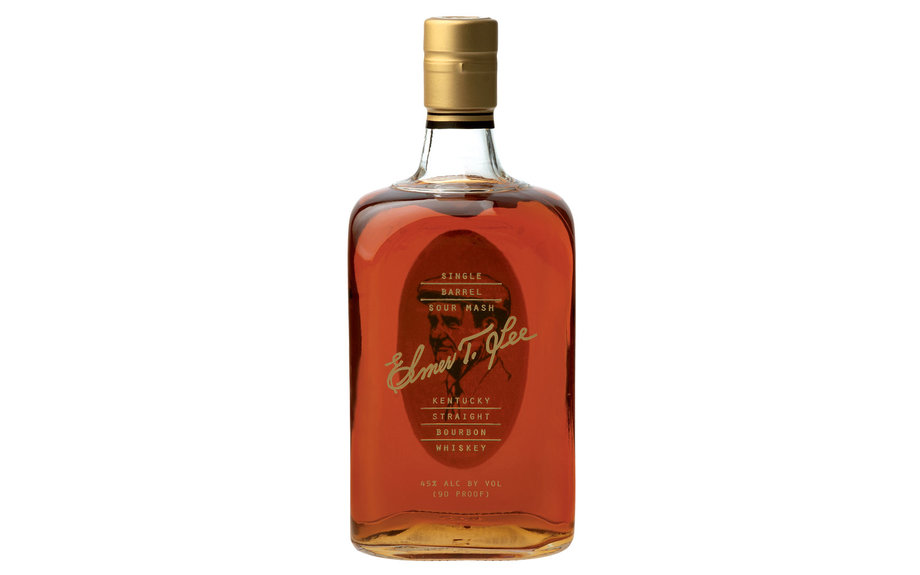
19. Elmer T. Lee Single Barrel
Named after a longtime employee of what is now the Buffalo Trace distillery. Lee forever changed the bourbon industry when he created Blanton’s, the first single-barrel bourbon, in 1984. So it’s appropriate that, the very next year, his name would adorn another single-barrel whiskey. “Elmer loved this bourbon,” said Wild Turkey master distiller Jimmy Russell, who knew the man, “and its profile is similar to my profiles.”
18. George T. Stagg
Introduced by Buffalo Trace in 2002 (upon the suggestion of a prescient customer), the uncut and unfiltered powerhouse bourbon was ahead of its time, marking the advent of a coming mania for the intense experience afforded by overproof bourbons. It is always bottled at no less that 15 years and is part of Buffalo Trace’s “Antique Collection.” It quickly became a collector’s item (The original bottling went for a mere $40.) and the limited run sells out every year. “If there is one collection of vintages a bourbon drinker compares in verticals year after year, this is it,” said Bill Thomas, owner of the Jack Rose Dining Saloon, a whiskey-lovers destination in D.C.
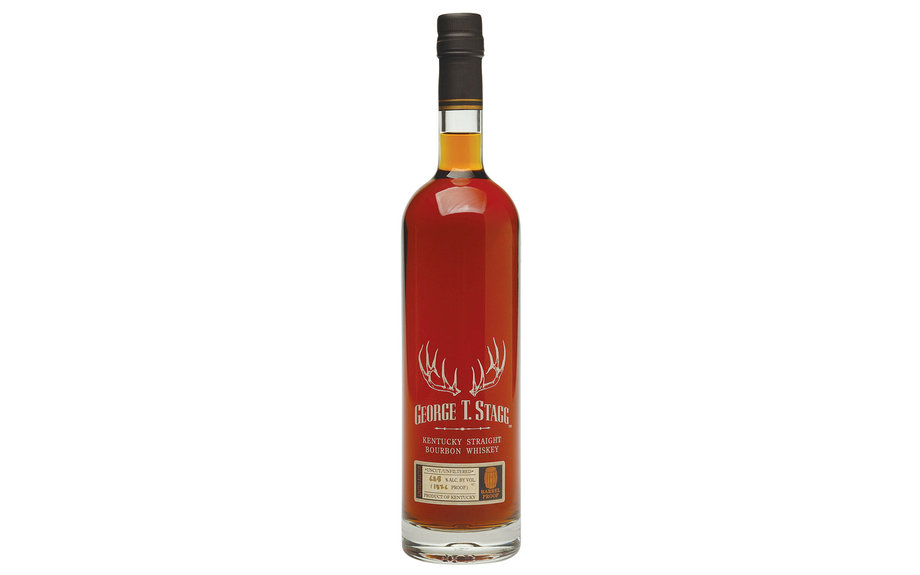
17. Old Grand-Dad bonded and 114
One of the oldest names in bourbon (the eponymous grand-dad is 19th-century distiller Basil Hayden), the high-rye Old Grand-Dad also culls respect for its bonded (100 proof by law) and barrel-proof renditions, which is both called and proofed “114.” Spirits writer Liza Weisstuch called the bonded, “easily the best bang-for-your-buck bourbon on the market,” while liquor historian David Wondrich pointed out that the 114 “was launched the same time as Blanton’s and just as pioneering, with only a fraction of the credit. Both are marks of bourbon’s residual pride and harbingers of its renaissance.”
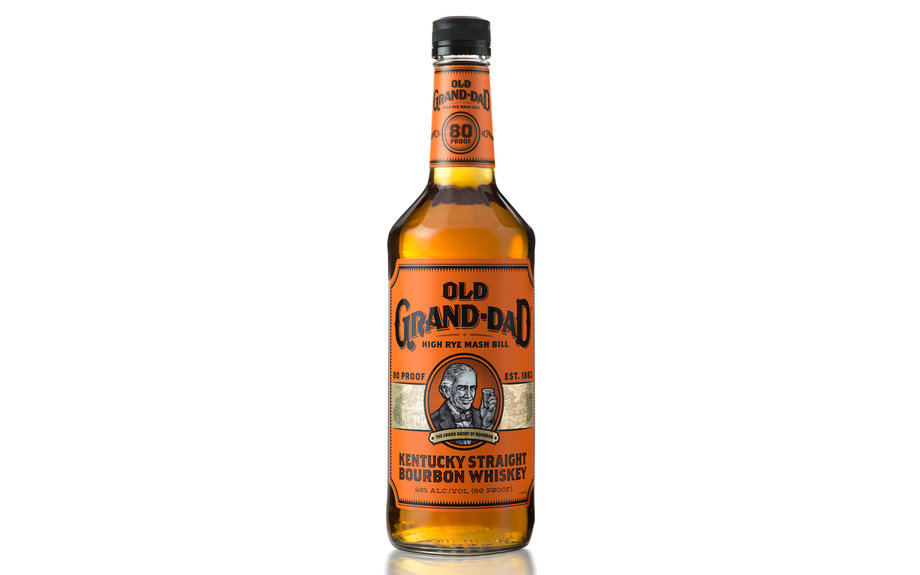
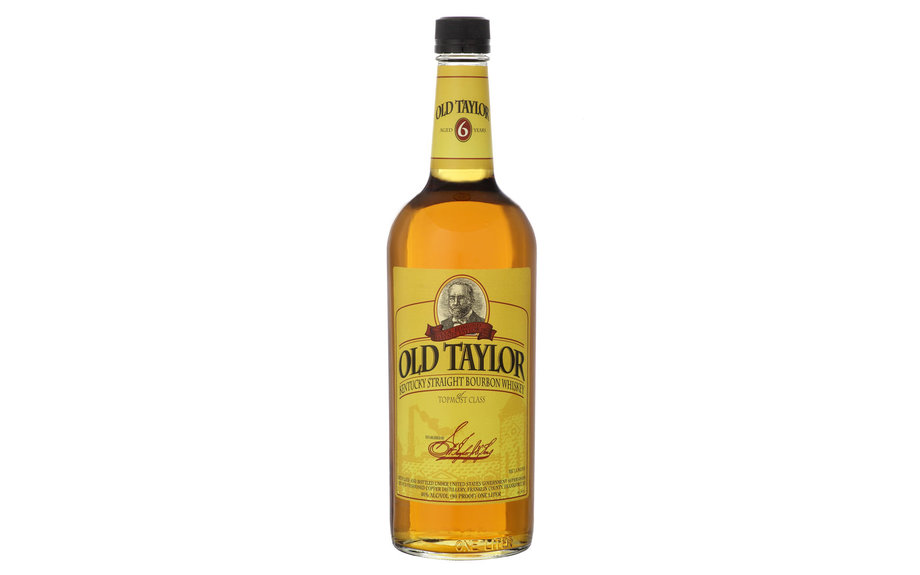
16. Old Taylor
This oft-overlooked heritage brand gets a nod of respect from history-minded experts who know that the Taylor of the title is Edmund Haynes Taylor Jr., who, more than anyone, was responsible for the passage of the Bottled in Bond Act of 1897. That law helped ensure the contents and quality of the liquid inside the bottles, putting behind an era when a lot of whiskey was adulterated by unscrupulous purveyors before it reached the consumer. Every bourbon that bore the bonded name had to be aged and bottled to particular legal regulations in federally bonded warehouses, and bottled at 100 proof. “It was the very first consumer protection act,” observed distiller Dave Pickerell, former master distiller at Maker’s Mark, “beating the Pure Food and Drug Act by nine years.”
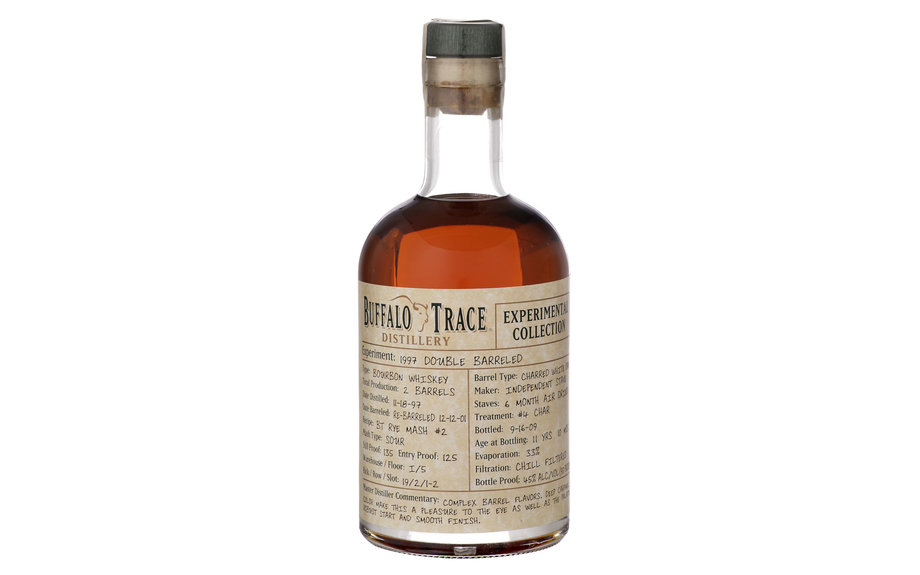
15. Buffalo Trace Experimental Series
The Buffalo Trace distillery began toying around with different whiskey-making methods—varying mash bills, a variety of barrel woods, different barrel toasts—in the early 1990s. Every possible variable was scrutinized. They’re still at it, and fairly often they unveil one of their experiments as a limited release, with the first coming in 2006. (More than 50 have been released.) There are now more than 14,000 experimental barrels sitting in Buffalo Trace rickhouses, waiting for their possible close-up. That’s a lot of curiosity. “Never before in bourbon history has a distiller experimented so extensively,” noted legendary liquor store owner LeNell Camacho Santa Ana.
14. Willett Family Estate line
The Willett family (and the man who married into it) saved a lot of great bourbon that no one else wanted and gave it to a thirsty and curious world. Even Kulsveen (who married Martha Willett) set up as an independent bottler in 1984, and began releasing whiskeys drawn from the leading distilleries in Kentucky. These were often uncut and unfiltered, offering bourbon geeks a no-holds-barred taste drawn from whiskey wellsprings. “These bottlings gave the modern bourbon drinker access to cask strength bourbon expressions from many distilleries,” said Bill Thomas, who carries many Willetts at his D.C. whiskey palace, Jack Rose Dining Saloon. “Each cask was judged by the quality of the juice and not the preconceived notion of brands.”
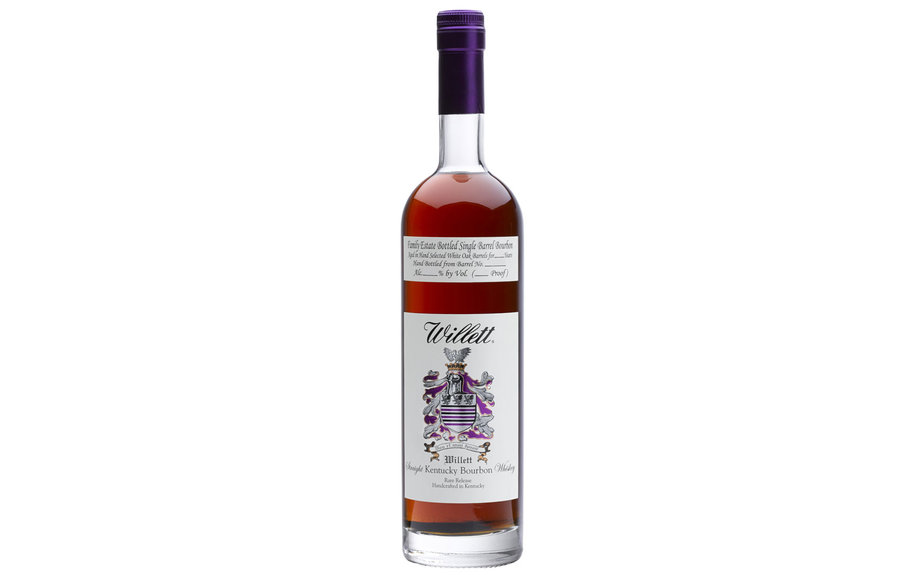
13. Hudson Baby Bourbon
Imagine an America with no craft distilling scene. It wasn’t too long ago. New York’s Tuthilltown Spirits, the state’s first whiskey distillery since Prohibition, helped to change that. “Without the tremendous efforts by founder Ralph Erenzo in passing the Farm Distillery Act of 2007 in New York,” said whiskey writer Heather Greene, “the massive proliferation of distilleries across New York State—arguably one of the U.S.’s hot spots of bourbon production outside of Kentucky—may not have flourished.” Tuthilltown’s flagship product was its Baby Bourbon, put out in a squat little 375 ml bottle that soon found a place in many bars and liquor stores. Many other fledging distillers followed Tuthilltown’s example. The oldest bourbon out there? No. The best? No. But few bottles have so altered the course of bourbon history.
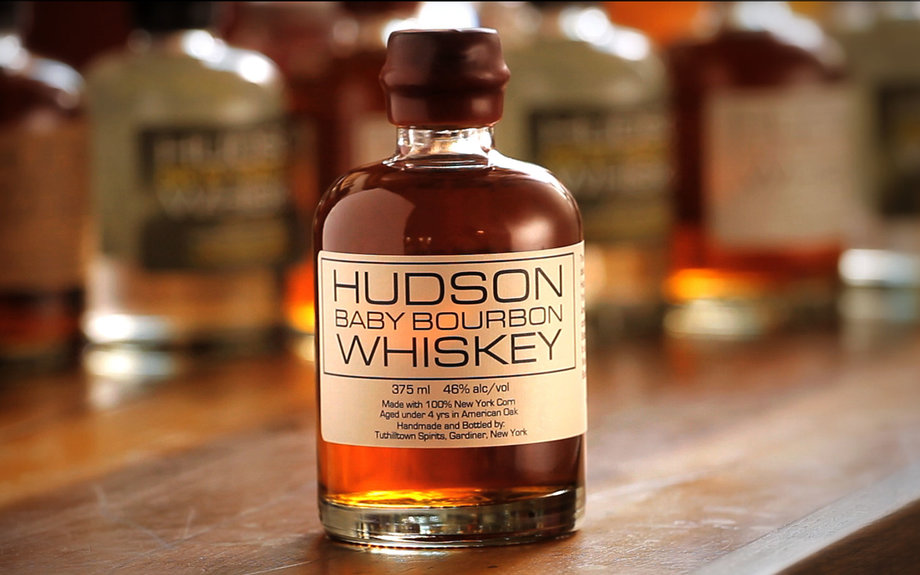
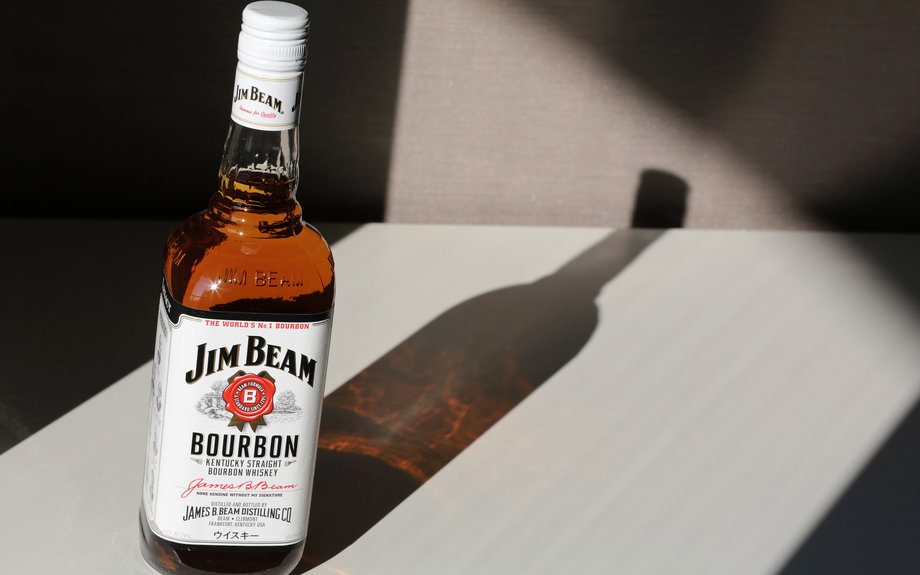
12. Jim Beam
You can’t have a list like this without including steady, sturdy, dependable, always-there Jim Beam. The best-selling bourbon in the world, ol’ white label has held steady through thick and thin times. As distiller David Pickerell pointed out, “it is hard to ignore the millions of cases Beam has sold.” Moreover, the sprawling Beam family of distillers has touched the fortunes of many other bourbon distilleries, notably Heaven Hill.
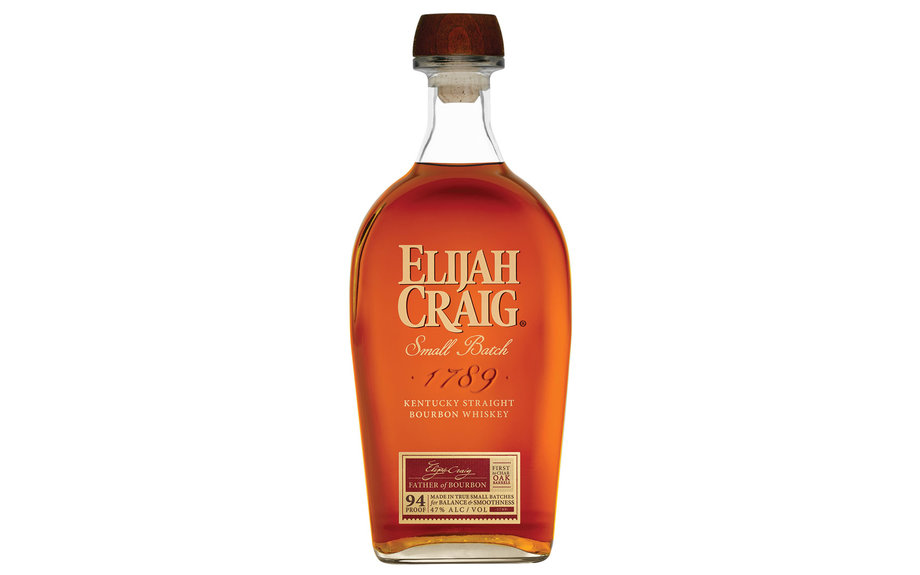
11. Elijah Craig
Along with Evan Williams, the Elijah Craig brand is the foundation of the Heaven Hill distillery. As Chris Morris, master distiller of Brown-Forman, put it, the two labels “combined over a generation to make Heaven Hill a bourbon powerhouse.” It was released in 1986, at a ridiculously low price, and at the then-unheard-of age of 12 years. That expression is no longer made and fondly remembered. Today’s Elijah Craig is between eight and twelve years old. There are also older expressions on the market that fetch a pretty penny.
10. Four Roses line
Perhaps more than any other Kentucky distillery, Four Roses stands as a symbol of bourbon’s recent turnaround. The brand all but vanished from the U.S. under the leadership of Seagram, who exported the once-best-selling juice to foreign markets. Beginning in 2002, new owners Kirin and distiller Jim Rutledge helped reinvent Four Roses as a premium brand, introducing single-barrel and then small-batch expressions. Four Roses is also innovative in its use of yeast, working with five strains. Combined with two mash bills, that results in 10 distinct bourbons. Larry Rice, owner of The Silver Dollar bar, a Louisville whiskey destination, said “Their successful transformation from blended bottom shelf to cult status distillers changed the way other distilleries continued with production.”
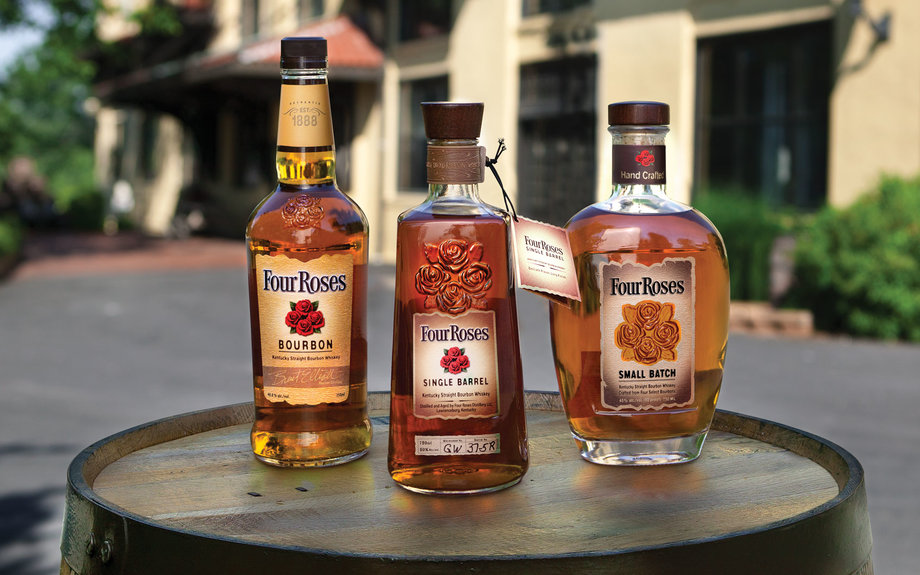
9. Knob Creek
One of the Jim Beam small-batch bourbon collection introduced in 1992 by famed distiller Booker Noe, the others being Baker’s and Basil Hayden’s. (The fourth member, Booker’s, debuted in 1988.) Knob Creek proved the most popular, helping to elevate the reputation of the distillery and bringing the small-batch bourbon movement, as well as the super-premium bourbon category, into the mainstream. Knob Creek and its brothers “became the gateway for many a new bourbon drinker,” said Bill Thomas. When Beam announced in 2009 that it was running short of the stuff due to high demand, the bourbon world collectively fainted.
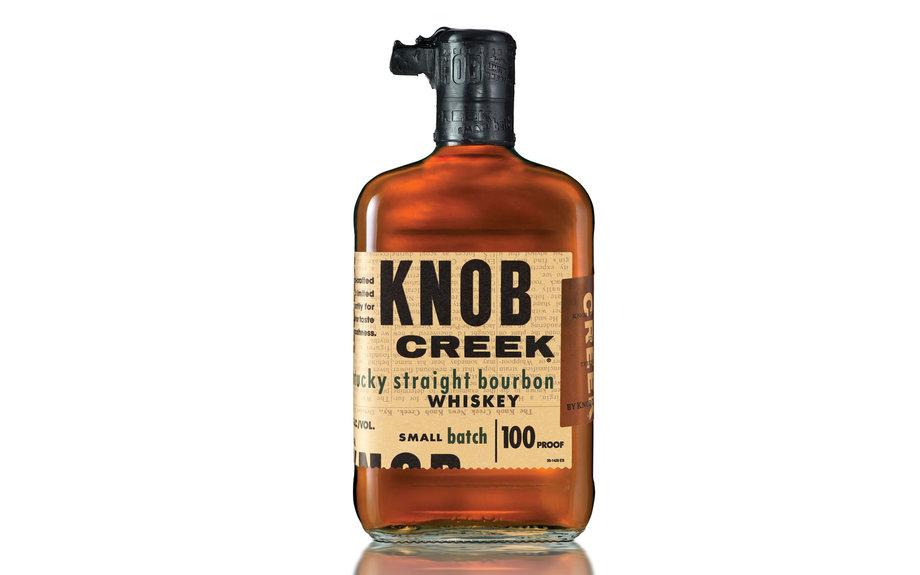
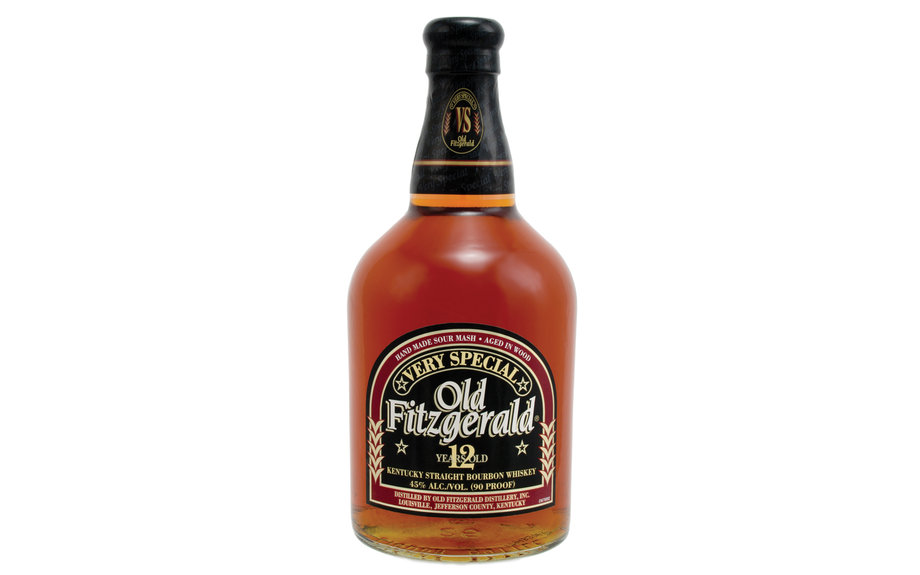
8. Very Very Old Fitzgerald
Before there was Pappy Van Winkle, there was Old Fitzgerald, a popular wheated whiskey for half a century after Prohibition. It was Van Winkle himself who bought the old brand and made it into a power player, added wheat to the mash bill and distilling it at the famous Stitzel-Weller Distillery. The Very Very Old Fitzgerald, a 12-year-old, was “just about perfect, as in perfectly balanced,” according to Cowdery. Today, the brand is produced by Heaven Hill. But the stuff people obsessed over is long gone.
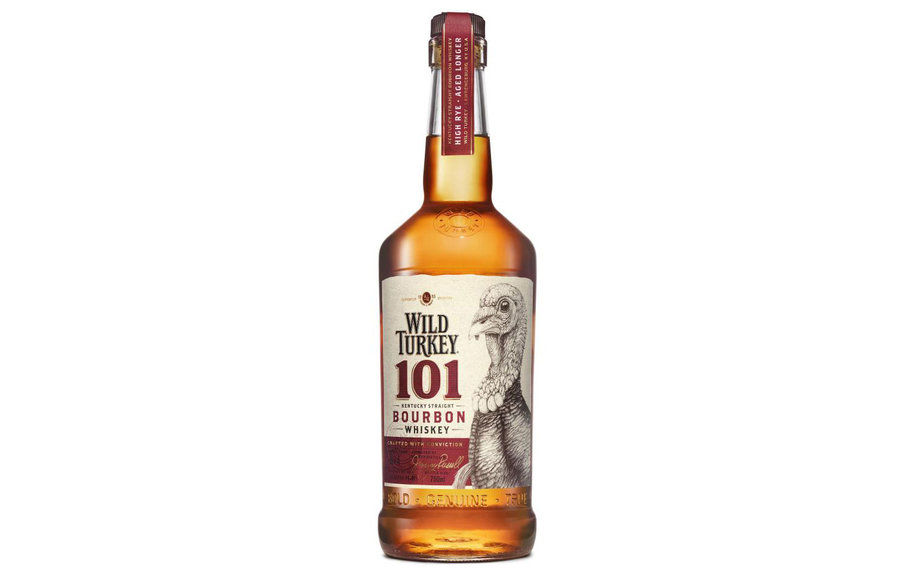
7. Wild Turkey 101
In the 1970s and ‘80s, when vodka reigned, and most of the bourbon barons ran scared, lowering their alcohol levels to appeal to callow drinkers, Jimmy Russell and Wild Turkey stood stubbornly by their 101 proof. They didn’t get much attention for their steadfastness until bourbon’s fortunes began to change, and the stick-to-their-guns style of Russell and his son Eddie elevated them to the status of bourbon icons. “Old, versatile, nuanced, affordable. A perfect reason to drink bourbon early and often. Great on its own or in a cocktail and always available, it could certainly be a standard bearer for bourbon if aliens landed on earth and needed a quick crash course on the subject,” said Allen Katz.
6. Old Crow
What’s being honored here is not the bottom-shelf, unremarkable Old Crow of today, but the Old Crow of yore, and the man who created it. In the mid-19th century, Dr. James Crow introduced practices that became standard operating procedure, including the sour mash process and routine aging. The former method, in which a bit of the previous batch of mash was transferred to the next, ensured consistency of flavor and quality. No one lives today who tasted the good doctor’s joyous juice. Still, “bourbon wouldn’t be what it is today if it weren’t for Dr. James Crow,” said Bill Samuels, president of Maker’s Mark. (Beam has made Old Crow since 1987.)
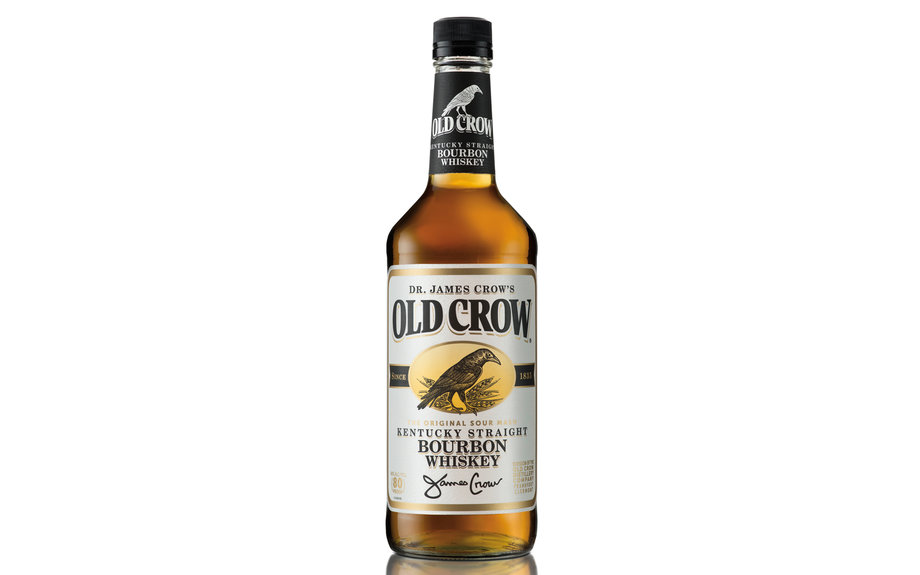
5. Old Forester
Old Forester was the first bourbon sold in sealed bottles, rather than in barrels. That seal meant that there was no way anyone could have messed around with your liquor—an assurance of purity. “Tamper proofing bourbon for the first time,” said Trey Zoeller, distiller of Jefferson’s, “helped set a protocol for all other legal bourbons to follow.” Never out of production since 1870, even through Prohibition, and long made by Brown-Forman (the distillery is named for the whiskey’s creator, George Garvin Brown), Old Forester never quite gets the full respect it ought to. But traditionalists know its worth.
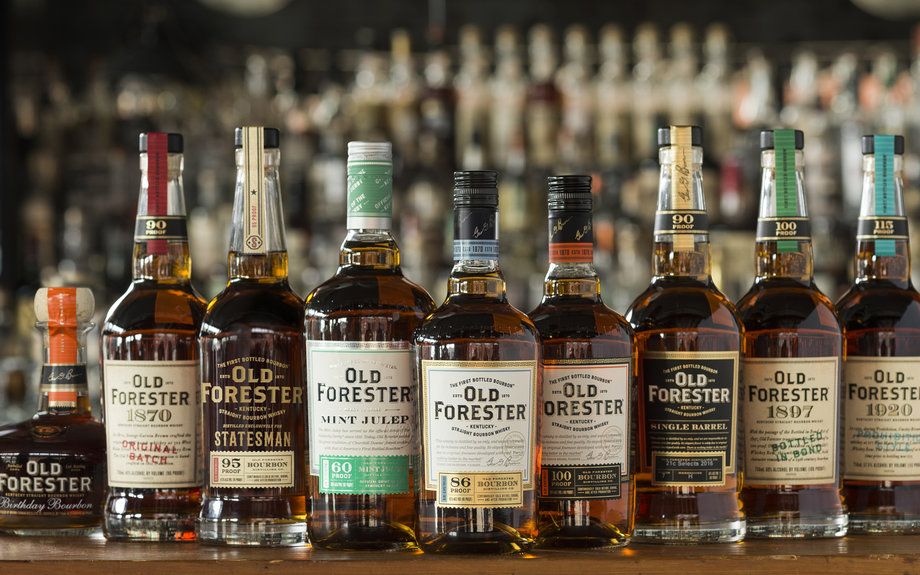
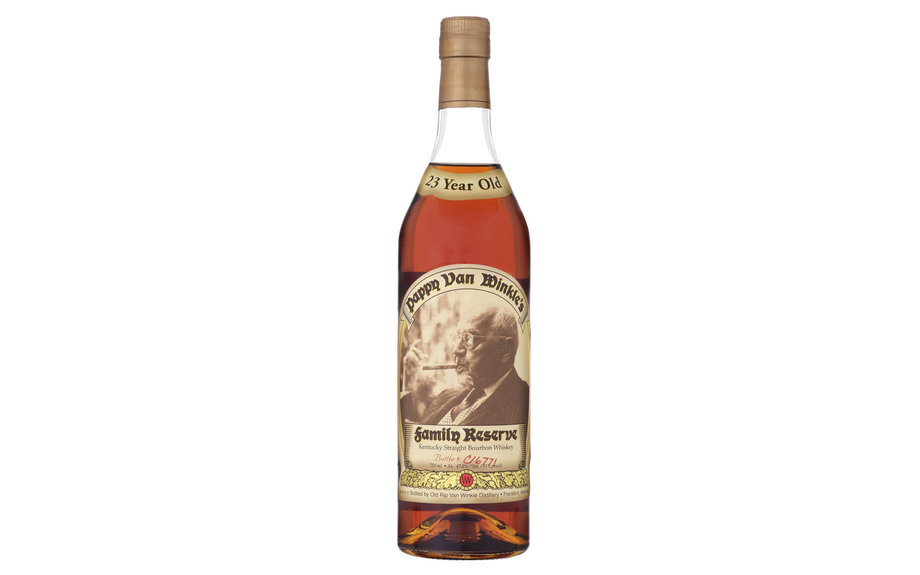
4. Pappy Van Winkle line
“Does this really need an explanation?,” asked whiskey writer Fred Minnick. “This brand commands a fandom that may lead to a new mental health diagnosis.” If you’re a teetotaler who has lived in a cave in the Great Smoky Mountains for the past twenty years, this is probably the one bourbon that would ring a bell. Allocated, hard to find, and a wallet-emptier when you do find it, the Van Winkle line fostered in bourbon drinkers a hunting mentality, and helped elevate bourbon into a luxury commodity on par with rare Bordeaux. Originally drawn by the Van Winkle family from the remaining stock at the Stitzel-Weller distillery, which closed in 1972, the wheated bourbon is now produced in collaboration with The Sazerac Company’s Buffalo Trace distillery, a partnership that officially began in 2002. Does the whiskey merit the hype? That’s not the point. Bourbon and hype had scant acquaintance before. Pappy changed that.
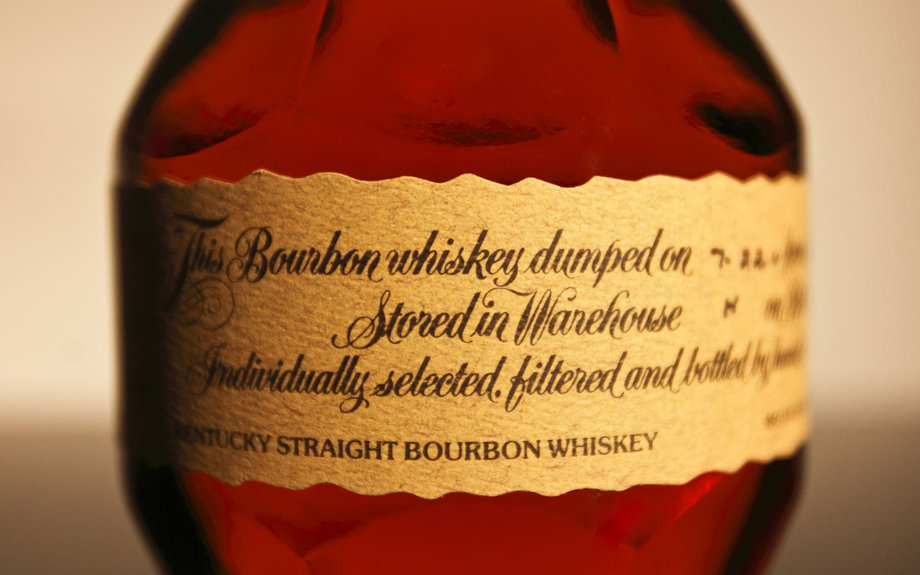
3. Blanton’s Single Barrel
“Single barrel” is a common bourbon category today, a term every bourbon lover knows (even if they don’t always understand it). Blanton’s was the first, debuting in 1984. It was the creation of Elmer T. Lee, a protégé of Albert Bacon Blanton, and an employee of what would become Buffalo Trace distillery. He saw a future for premium bourbon when many did not. Lee plucked select barrels for their excellence and put the contents in a fine, fancy package, topped by an unmistakable metal stopper shaped like a horse and jockey. He then slapped an unheard-of-at-the-time $25 price tag on it. Japan was the target market, but it slowly caught on in the U.S. Today, you’d be lucky to find a bottle. “Elmer T. Lee realized this type of whiskey could save the struggling category and asked the other distillers to follow suit,” said Noah Rothbaum, the editor of the Daily Beast’s drink and food section and the author of The Art of American Whiskey. Added whiskey writer Lew Bryson, “it didn’t hurt that’s it’s exceptionally good whiskey.”
2. Booker’s
The first widely embraced barrel-proof whiskey, Booker’s, first available in 1988, was created by and named for Booker Noe, the grandson of Jim Beam, as well as Beam’s master distiller from 1960 to 1992 and a modern bourbon legend. The liquid reflected the larger-than-life character of its creator. It was uncut and straight from the barrel and sold for an impressive $40. He may have just been making the kind of whiskey he liked to drink, but he sparked a cask-strength phenomenon that continues today. Additionally, Noe’s choice to name it after himself arguably helped usher in the modern age of the celebrity distiller. “Had Booker lived [to promote his bourbon more thoroughly],” posited Bryson, “he would arguably be bigger than Pappy Van Winkle—an outsized personality in an outsized man, bottling an outsized bourbon.”
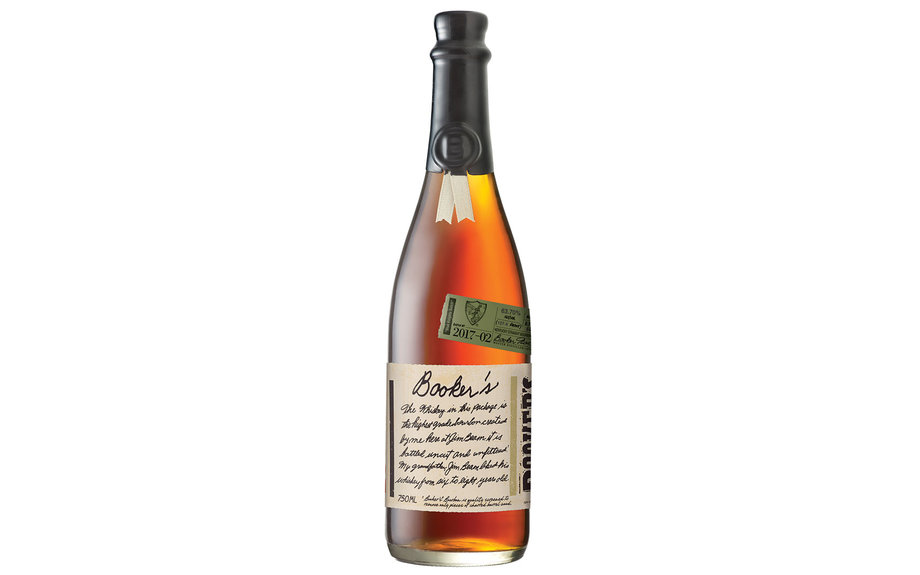
1. Maker’s Mark.
The clear choice for the top spot among our panel of experts, chosen by 17 of the 23 people polled (including 8 of the 10 distillers), Maker’s Mark can make multiple claims to the title of “most important.” That iconic dripped-red-wax seal (“a red dress in a sea of gray,” said whiskey writer Fred Minnick); the remarkable bottle shape; the smooth, easy-to-like, wheated bourbon inside; the savvy marketing; and, most of all, the gutsy investment in bourbon’s future at a time when it looked like the spirit might not have one. Bill Samuels Sr. launched Maker’s in 1958. By the 1980s, it was bourbon’s poster child, regarded (fairly or not) as a craft product amid a sea of industrial mediocrity. Maker’s was many young drinkers’ introduction to the spirit. Seasoned experts might scoff at the mild Maker’s as “training wheels” bourbon, but the world embraced it as a premium good. It inspired devotion and connoisseurship among its devotees. Soon, the distillery itself became a tourist attraction, offering tours starting in 1968, long before “bourbon tourism” became a thing. Arguably, more than any other brand, it helped ignite the bourbon renaissance we all enjoy today.
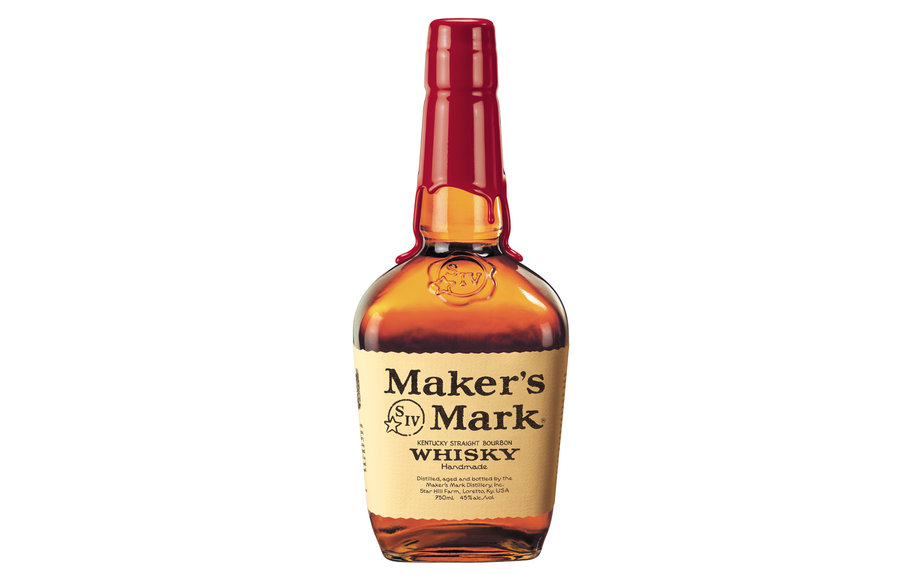
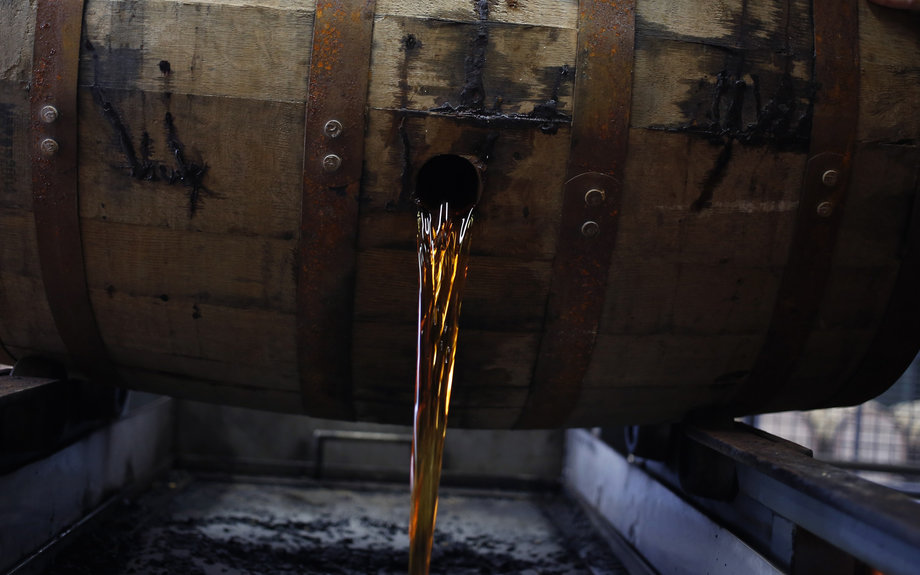
Panel of Experts
DISTILLERS:
Pamela Heilmann, Michter’s
Allen Katz, New York Distilling Company
Chris Morris, Brown-Forman
Fred Noe, Jim Beam
Dennis Potter, Heaven Hill
Dave Pickerell, Whistle Pig, Hillrock et al.
Jimmy Russell, Wild Turkey
Bill Samuels Jr., Maker’s Mark
Harlan Wheatley, Buffalo Trace
Trey Zoeller, Jefferson’s
WHISKEY WRITERS/HISTORIANS:
Lew Bryson, “Tasting Whiskey”
Chuck Cowdery, The Bourbon Country Reader, The Chuck Cowdery Blog
Heather Greene, “Whisk(e)y Distilled”
Fred Minnick, “Whiskey Women,” “Bourbon,” etc.
Clay Risen, “Whiskey, Bourbon & Rye”
Noah Rothbaum, The Daily Beast, “The Art of American Whiskey”
Robert Simonson, The New York Times, “A Proper Drink,” etc.
Liza Weisstuch, Whisky Advocate, Whisky Magazine etc.
David Wondrich, The Daily Beast, “Imbibe!,” etc.
WHISKEY BAR OWNERS/WHISKEY STORE OWNERS:
Mike Miller, Delilah’s, Chicago, IL
Larry Rice, The Silver Dollar, Louisville, KY
LeNell Camacho Santa Ana, LeNell’s, Birmingham, AL
Bill Thomas, Jack Rose Dining Saloon, Washington, DC
